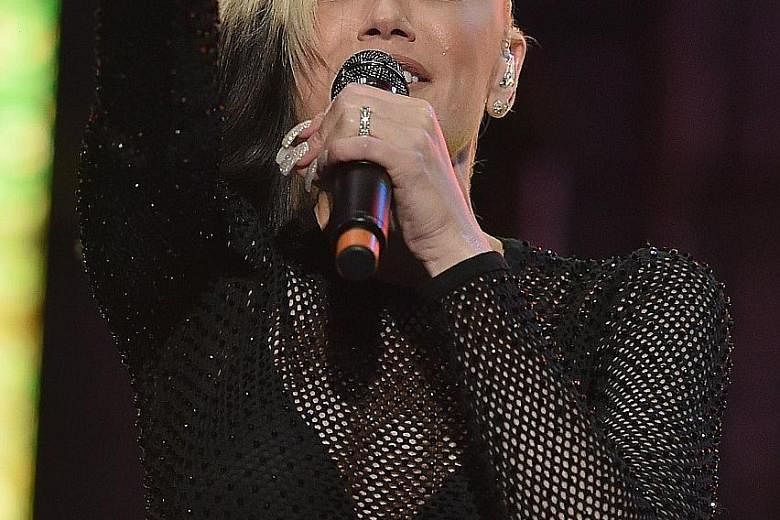LOS ANGELES • Gwen Stefani and Bruno Mars joined more than 1,000 artists in a letter asking European regulators to alter copyright laws that they say let YouTube profit from their music without properly compensating them.
In a letter to European Commission President Jean-Claude Juncker, the artists bemoaned the discrepancy between how much music people listen to on the Google-owned video site and how much money is paid to artists.
"The future is jeopardised by a substantial 'value gap' caused by user upload services such as Google's YouTube that are unfairly siphoning value away from the music community and its artists and songwriters," the artists wrote. "We urge you to take action now to create a fair playing field for artists and rights owners."
Taylor Swift and Paul McCartney signed a similar letter earlier this month, petitioning the United States Congress to reform copyright law. The record industry has recruited artists to help fight YouTube, hoping they can energise the public and apply greater pressure on the video site.
The music industry's three major labels are in the middle of negotiating new long-term deals with YouTube.
In particular, the artists want regulators to alter safe-harbour provisions, which shield services such as YouTube from liability when users upload copyrighted material without permission.
The music industry has long argued that the law placed too much of the burden on artists to police websites and allowed Internet services to host pirated material with impunity.
The services have rejected these claims, pointing to tools, such as YouTube's Content ID, that identify infringing material.
YouTube has also said it has paid out more than US$3 billion (S$4 billion) to rights-holders.
The music industry suffered defeat in a separate regulatory matter last Thursday, when the US Justice Department recommended no changes to the existing agreements governing how songwriters get paid.
Ascap and BMI, two groups that collect royalties on behalf of songwriters, had pushed to alter terms dating back to 1941.
Songwriters say they have lost out in the transition from CDs to digital sales to streaming music. They earn a fraction of what recording artists do.
BLOOMBERG

